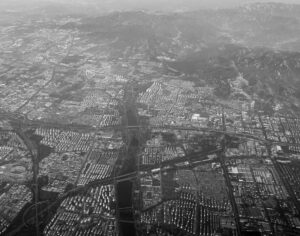China’s Rural-Urban Transformation: Special Issue of the Journal of Current Chinese Affairs
German sinologist Björn Alpermann has guest-edited a new special issue of the Journal of Current Chinese Affairs that focuses on “China’s Rural-Urban Transformation: New Forms of Inclusion and Exclusion”.
As Alpermann writes in the abstract of his editorial: “China’s urbanisation drive has been unprecedented in scale. It has also produced some paradoxical outcomes and led to multiple interconnections between the rural and the urban spheres. These interconnections are the central focus of this special issue. Thus, preference is given to the term ‘rural–urban transformation’ instead of simply ‘urbanisation.’ The main argument advanced here is that we always need to consider the rural aspects and repercussions alongside the urban side of this dual process. This introduction first highlights some of these antinomies to set the stage for the discussion. Next, it explains how they relate to changing mechanisms of inclusion/exclusion. It is proposed that a theoretical approach of functional differentiation can help us sort out the various ways inclusions and exclusions are being produced and combined. Finally, the introduction presents an overview of the articles collected in this special issue and how they relate to the aforementioned topics.”
Contributors are Xiang Wang from the Nanjing Institute of Technology (Permits, Points, and Permanent Household Registration: Recalibrating Hukou Policy under “Top-Level Design”), Philip C.D. Immel (High-Modernist Urban Planning in Beijing for Population Control), Florian Thünken (Rural-to-Urban Transition in Chongqing’s Hinterland: State-Led Urbanisation or Urbanisation From Below?), and Michael Malzer (Rural-to-Urban Transition in Chongqing’s Hinterland: State-Led Urbanisation or Urbanisation From Below?) from the University of Würzburg, and Isabel Heger from the FU Berlin (Rural-to-Urban Transition in Chongqing’s Hinterland: State-Led Urbanisation or Urbanisation From Below?).
